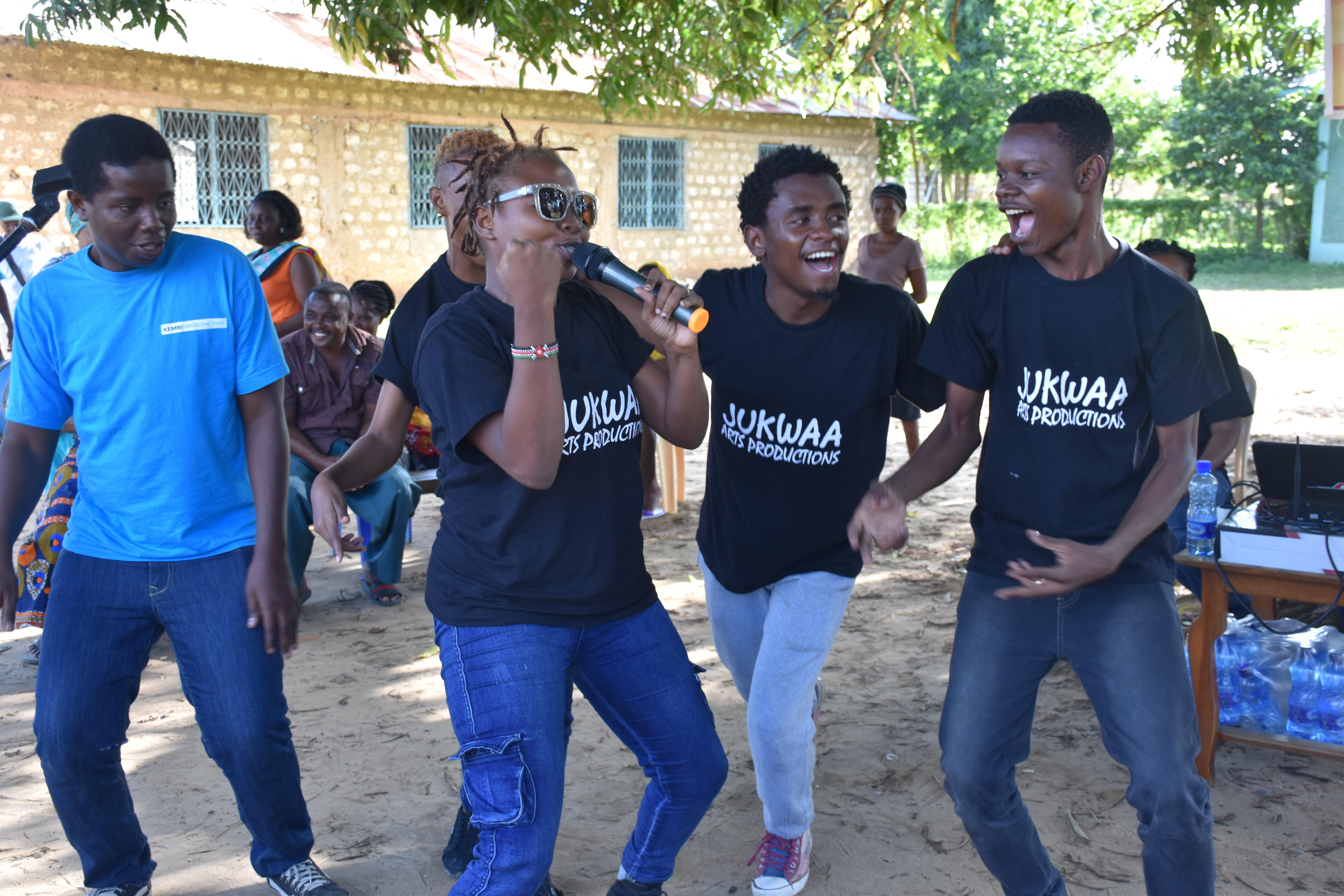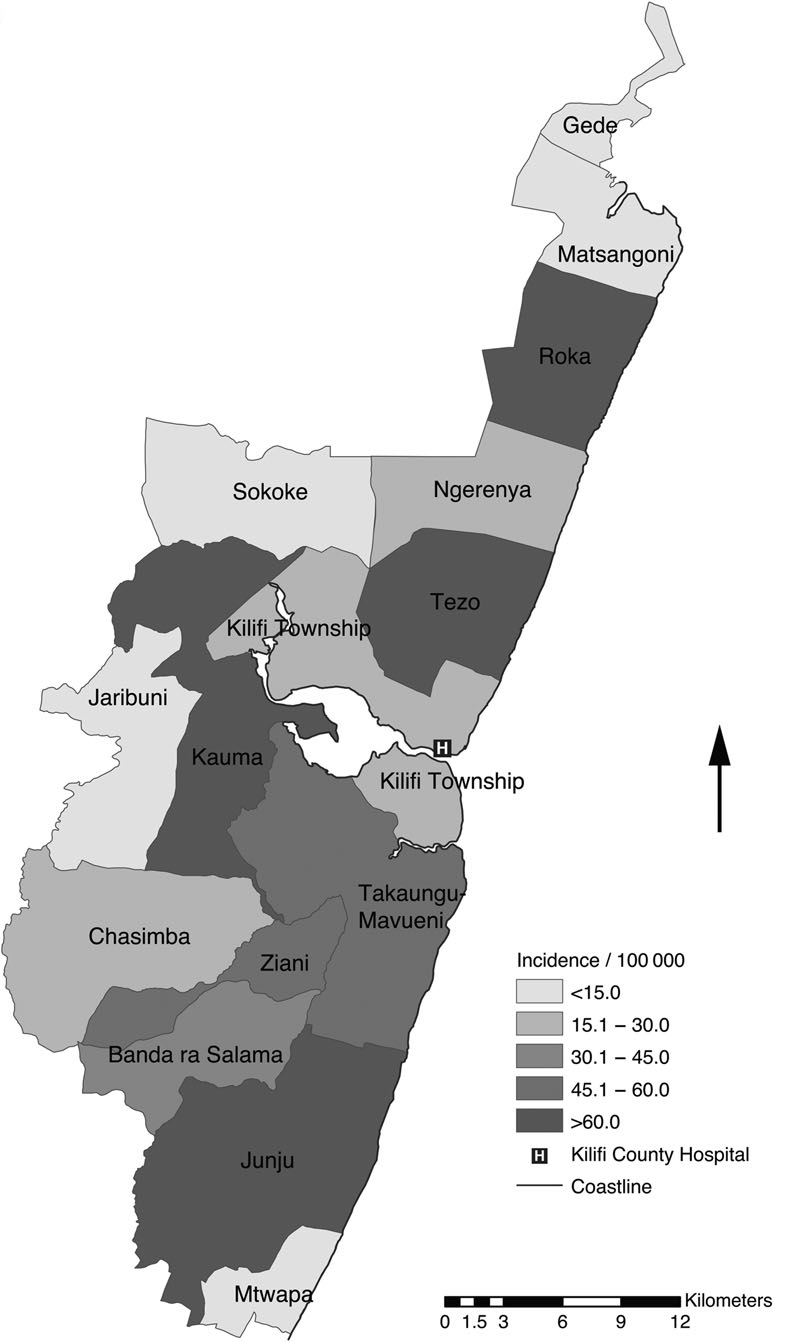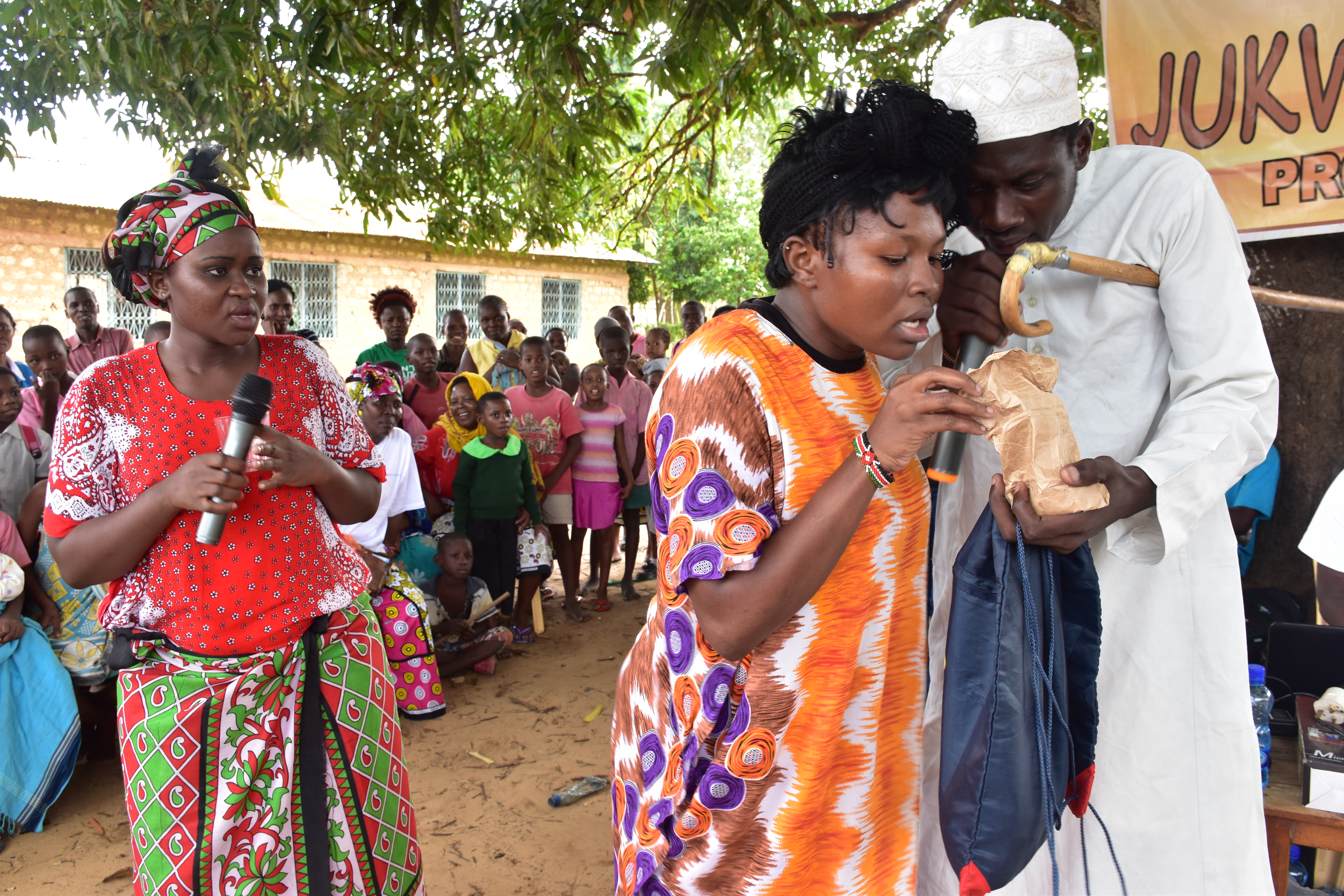
Photo credits | Noni Mumba
What is Magnet Theatre and why have we used it?
Magnet Theatre (MT) is a specific form of participatory community theatre that is conducted at a regular time and place over an extended period. A key characteristic of the approach is that actors present a topic of interest, in this case health research, and the drama is paused at a point where the actors face a dilemma. The audience are then invited to reflect on the problem, discuss possible solutions to the dilemmas and enact how the drama should proceed. KEMRI Wellcome Trust Research Programme’s (KWTRP’s) MT aimed at raising audience awareness of research and at enabling members of the public to share their views, experiences and concerns about health research.

Implementing MT
Jukwaa Arts, a local theatre company was contracted to conduct MT at two localities 100km apart in Kilifi County (i) Mtwapa; an urban town 40km south of Kilifi town; and (ii) Mida; a rural area situated to the north of Kilifi. Sites were carefully selected in consultation with community leaders and drama scripts were co-produced between Jukwaa Arts and the KWTRP engagement team based on topics derived from questions raised by the community. Six outreaches per site were conducted fortnightly from 3.00pm to 5.00pm between March and September 2018. The drama presented health research-related dilemmas to the audience who were subsequently invited to share their views and take up the roles of some of the actors to depict how they would address the dilemma. Some outreaches were attended by KWTRP researchers who participated in discussions.
Figure 1: Map showing Mtwapa and Mida outreach sites. Image credit | KWTRP KHDSS Team
Monitoring and evaluation
Data collection methods comprised: desk reviews of minutes of planning and debrief meetings; field notes; outreach monitoring reports; a reflective workshop conducted with repeat audience members (who had attended four or more consecutive outreaches at each site); and a focus group discussion with community engagement staff who were involved in the implementation of the initiative. Consented discussions were audio recorded and note taking was done by the evaluation team. Transcripts of the audio recorded workshop discussions and FGD were analysed using content analysis approach.
What we gained from MT
MT provided a means of nurturing interaction and engagement about health research between members of the public and research staff. Conveying research concepts through dramatized dilemmas, everyday issues, and moments of joy and conflict, provided an entertaining way for audiences to learn about research, and for researchers to learn about public questions and concerns. Though expensive in terms of time and money, we recommend MT as a complementary and enjoyable addition to research institutes’ engagement strategies.
What did participants and audiences say about MT?
“People enjoyed, and in the process of enjoying it was easier for them to understand” (Mtwapa Repeat Audience, Male)
“To me, creating awareness through drama makes people understand more” (Mtwapa Repeat Audience, Female)
“… having a repeated interaction with the community...brings the level of trust more to good levels, that they can share deeper concerns which means maybe they could not have shared in just one interaction” (P4, KWTRP engagement staff, Female)
Lessons learnt from MT for engagement
Evaluation of the MT initiative, yielded evidence that the approach can:
- Attract modestly large public audiences (1454 adults), many of whom were not reached through other KWTRP engagement approaches.
- Provide an effective way of conveying research concepts through dilemmas which are familiar to members of the public.
- Provide a forum for members of the public to raise questions and share their views and concerns about health research.
Challenges encountered:
- MT is relatively expensive, however, it provides an alternative way of making engagement with research accessible to the public.
- MT is time consuming which can present challenges to participating researchers.
Several factors contributed to the success of the outreach:
- Involving a professional theatre company to co-write scripts and facilitate sessions.
- Holding the sessions in familiar public places away from the potentially intimidating research institution enabled audience members to freely express their views.
- Conveying research content through drama made the sessions enjoyable which in turn stimulated a desire for further engagement.
This work has been published in the Wellcome Open Research journal (https://doi.org/10.12688/wellcomeopenres.16461.2)
This project was funded through a Wellcome Trust Provision for Public Engagement grant award number 203077/Z/16/Z.
This work is licensed under a Creative Commons Attribution 4.0 International License



Please Sign in (or Register) to view further.